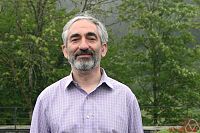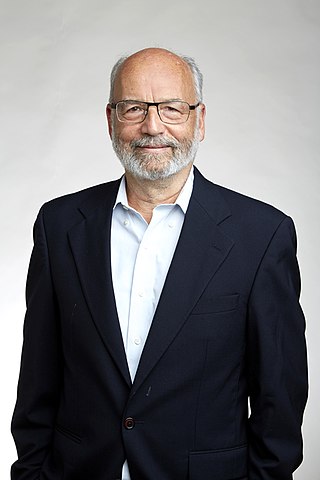
Adi Shamir is an Israeli cryptographer and inventor. He is a co-inventor of the Rivest–Shamir–Adleman (RSA) algorithm, a co-inventor of the Feige–Fiat–Shamir identification scheme, one of the inventors of differential cryptanalysis and has made numerous contributions to the fields of cryptography and computer science.
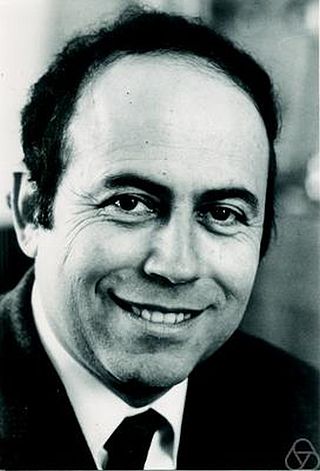
Michael Oser Rabin is an Israeli mathematician, computer scientist, and recipient of the Turing Award.
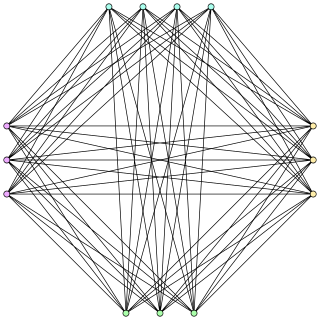
Extremal graph theory is a branch of combinatorics, itself an area of mathematics, that lies at the intersection of extremal combinatorics and graph theory. In essence, extremal graph theory studies how global properties of a graph influence local substructure. Results in extremal graph theory deal with quantitative connections between various graph properties, both global and local, and problems in extremal graph theory can often be formulated as optimization problems: how big or small a parameter of a graph can be, given some constraints that the graph has to satisfy? A graph that is an optimal solution to such an optimization problem is called an extremal graph, and extremal graphs are important objects of study in extremal graph theory.

Béla Bollobás FRS is a Hungarian-born British mathematician who has worked in various areas of mathematics, including functional analysis, combinatorics, graph theory, and percolation. He was strongly influenced by Paul Erdős since the age of 14.
Extremal combinatorics is a field of combinatorics, which is itself a part of mathematics. Extremal combinatorics studies how large or how small a collection of finite objects can be, if it has to satisfy certain restrictions.
Joel Spencer is an American mathematician. He is a combinatorialist who has worked on probabilistic methods in combinatorics and on Ramsey theory. He received his doctorate from Harvard University in 1970, under the supervision of Andrew Gleason. He is currently a professor at the Courant Institute of Mathematical Sciences of New York University. Spencer's work was heavily influenced by Paul Erdős, with whom he coauthored many papers.
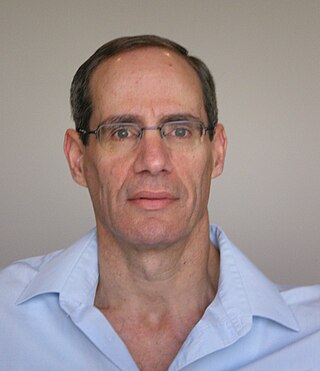
Noga Alon is an Israeli mathematician and a professor of mathematics at Princeton University noted for his contributions to combinatorics and theoretical computer science, having authored hundreds of papers.
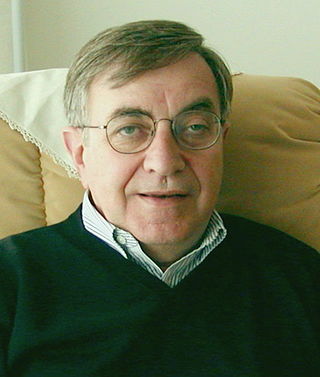
Elhanan Helpman is an Israeli economist who is currently the Galen L. Stone Professor of International Trade at Harvard University. He is also a Professor Emeritus at the Eitan Berglas School of Economics at Tel Aviv University. Helpman is among the thirty most cited economists in the world according to IDEAS/RePEc.
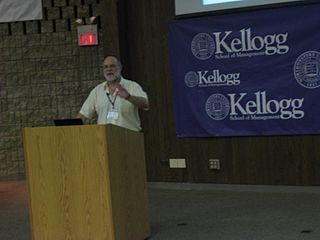
Sergiu Hart is an Israeli mathematician and economist. He is the Chairperson of the Humanities Division of the Israel Academy of Sciences and Humanities, and the past President of the Game Theory Society (2008–2010). He also is emeritus professor of mathematics at the Kusiel-Vorreuter University, and the emeritus professor of economics at the Center for the Study of Rationality at the Hebrew University of Jerusalem in Israel.
David Schmeidler was an Israeli mathematician and economic theorist. He was a Professor Emeritus at Tel Aviv University and the Ohio State University.

Irit Dinur is an Israeli mathematician. She is professor of computer science at the Weizmann Institute of Science. Her research is in foundations of computer science and in combinatorics, and especially in probabilistically checkable proofs and hardness of approximation.
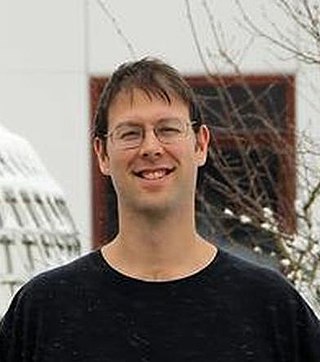
Jacob Fox is an American mathematician. He is a professor at Stanford University. His research interests are in Hungarian-style combinatorics, particularly Ramsey theory, extremal graph theory, combinatorial number theory, and probabilistic methods in combinatorics.

Benny Sudakov is an Israeli mathematician, who works mainly on extremal and probabilistic combinatorics.
Assaf Naor is an Israeli American and Czech mathematician, computer scientist, and a professor of mathematics at Princeton University.

Zeev Rudnick or Ze'ev Rudnick is a mathematician, specializing in number theory and in mathematical physics, notably quantum chaos. Rudnick is a professor at the School of Mathematical Sciences and the Cissie and Aaron Beare Chair in Number Theory at Tel Aviv University.

Ron Shamir is an Israeli professor of computer science known for his work in graph theory and in computational biology. He holds the Raymond and Beverly Sackler Chair in Bioinformatics, and is the founder and former head of the Edmond J. Safra Center for Bioinformatics at Tel Aviv University.
Wojciech Samotij is a Polish mathematician and an associate professor at the School of Mathematical Sciences at the Tel Aviv University. He is known for his work in combinatorics, additive number theory, Ramsey theory and graph theory.
Elchanan Mossel is a professor of mathematics at the Massachusetts Institute of Technology. His primary research fields are probability theory, combinatorics, and statistical inference.
József Balogh is a Hungarian-American mathematician, specializing in graph theory and combinatorics.
Tali Kaufman is an Israeli theoretical computer scientist whose research topics have included property testing, expander graphs, coding theory, and randomized algorithms with sublinear time complexity. She is a professor of computer science at Bar-Ilan University, and a fellow of the Israel Institute for Advanced Studies.
